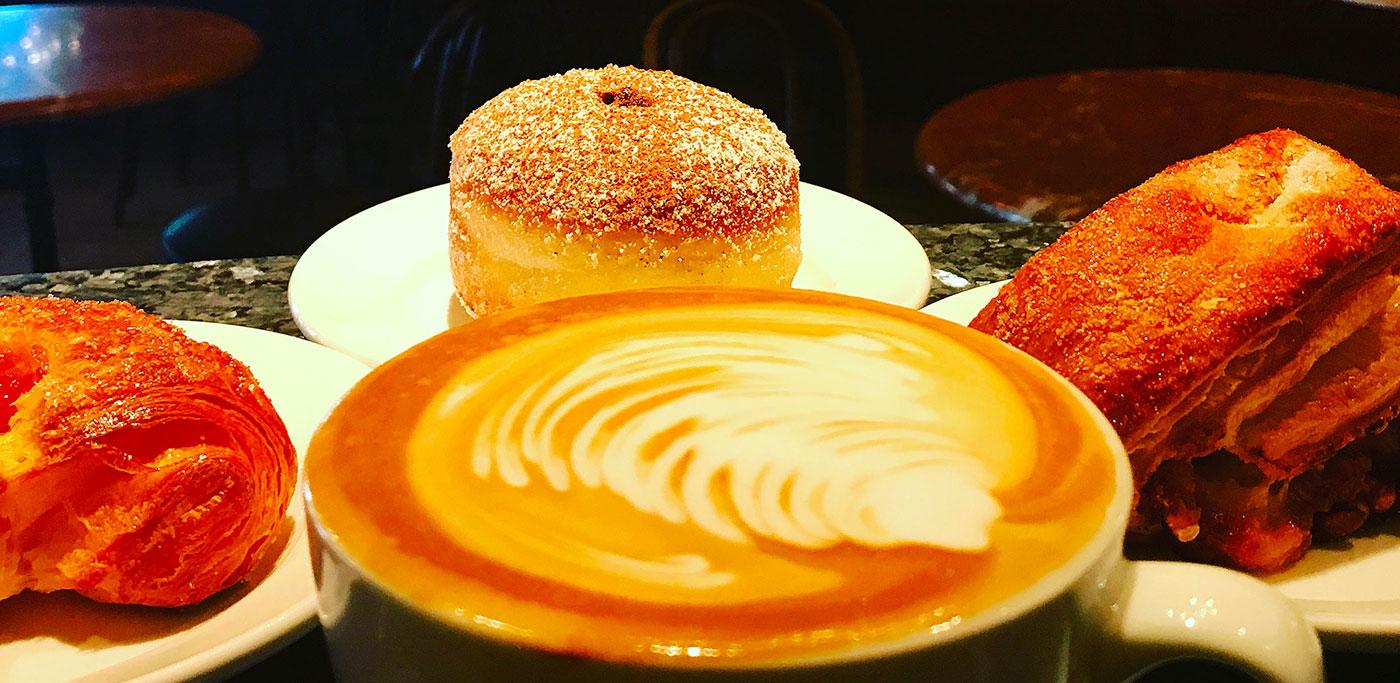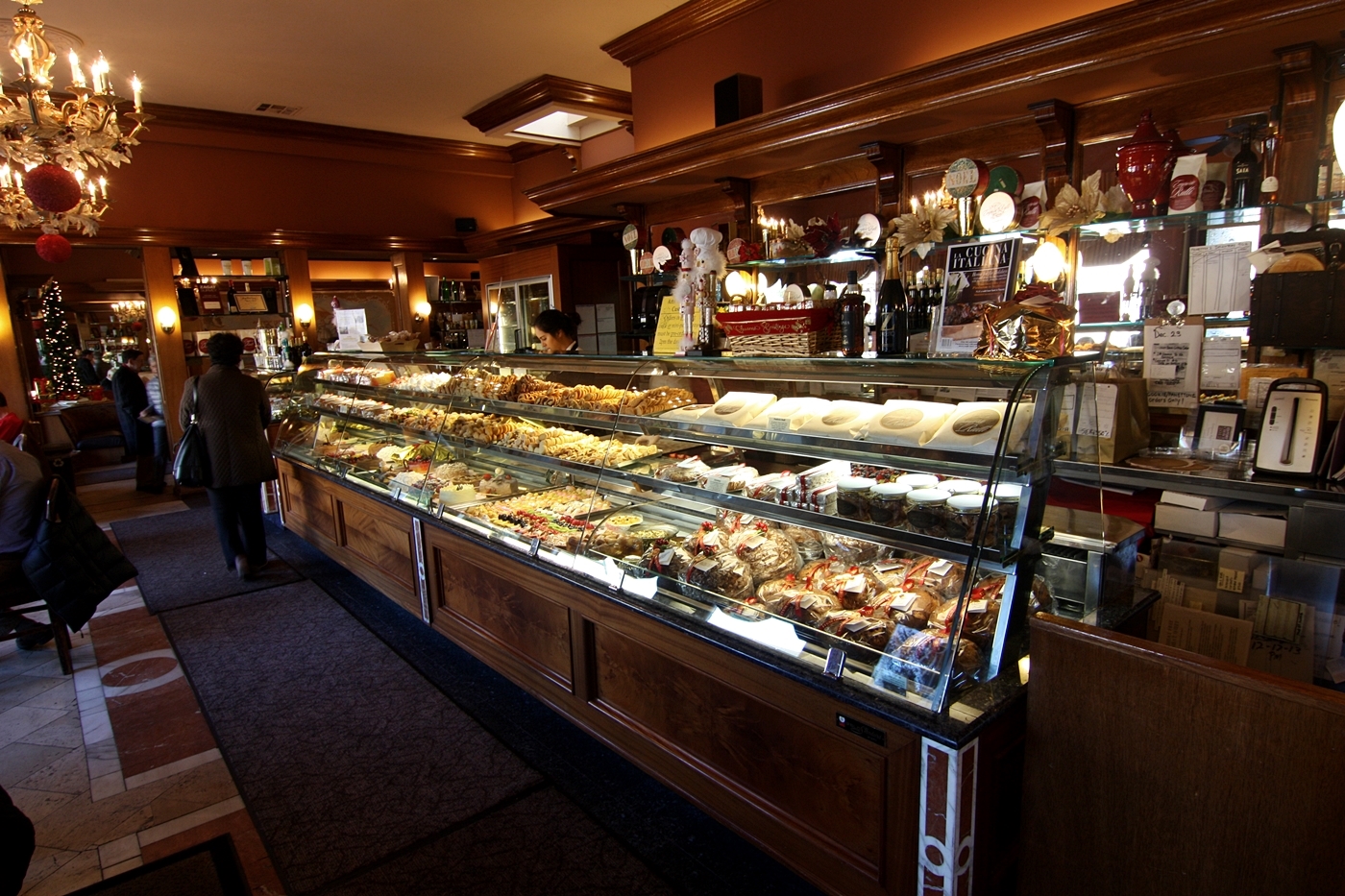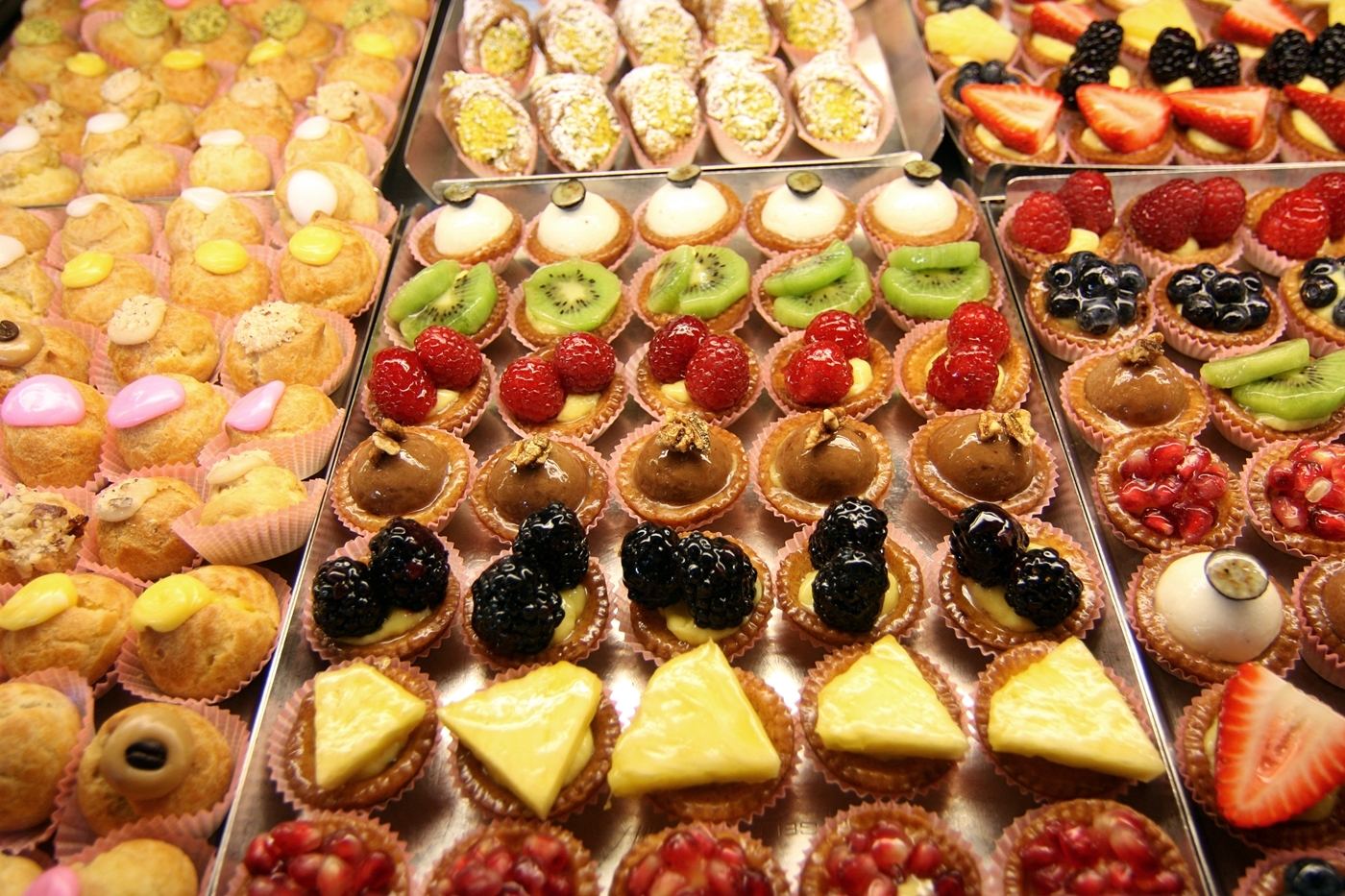Emporio Rulli is the real thing, as is its Master Pasticcere
When I began living in Marin I looked desperately for an authentic coffeehouse. That’s coffeehouse, not coffee shop. The latter – usually a chain – sells coffee (usually not very good) and coffee accoutrements. A coffeehouse, steeped in centuries-long ethos, makes and sells coffee, but it’s much more than that. In my experience, I spent a lot of time in Greenwich Village coffee houses, usually down a flight of steps, and was in an oasis of musicians, poets, artists; and lovers of deep conversation on topics of the day. I once owned a coffeehouse where my place attracted those aforementioned denizens of bohemian proclivities.
Gary Rulli’s Emporio Rulli in Larkspur doesn’t resemble a Village boîte, but it’s as close to an Italian café as you’ll find in all of Marin County; and in all of the Bay Area, for that matter. Italian marble on the floors and tables, brass everywhere, and frescoes. The espresso machine hisses and belches constantly, and the talk among the habitués of Gary Rulli’s Emporio, which reverberates about the issues of the day, at points, zeros in on something else.
Emporio Rulli’s – chef extraordinaire Gary Rulli’s and his pastries.
That’s because the man is a master pastry chef – a pasticcere. In fact, he’s the only Italian American to earn that title by the AMPI or Accademia Maestri Pasticceria Italiana (Italian Pastry Masters Academy). To justify the title, Rulli’s panettone, for example, is legendary. Not only in these parts, but Emporio Rulli ships the 2 1/4-pound leavened “dove”-shaped sweetened bread – more resembling a kicked-too much rugby ball – all over the country.
Or take – please – his northern Italian-style strudel, filled with baked apples, walnuts, almonds, and cinnamon, flavored with Marsala and wrapped in a crispy all-butter puff pastry. Or the biscotti or the amaretti cookies and the sbrisolona crumble cake. All enhanced and mingled with Rulli’s own roasted and blended coffees (the method for which was taught to Rulli by Alfred Peet, whose coffees originated in Berkeley, long before Peet’s was sold to various national corporate entities). And those cakes, they fly out the door, especially during holidays.
How lucky are we – I and my Sicilian-American partner, and you – that we’ve had this establishment in our midst since 1988?
So, how did it happen? How did a guy from San Francisco and Marin come to design, create, and make these Italian pastries – made for adults, really – as they are less sweet than typical American-made confections? As in the Italian way.
It all started when Rulli began making doughnuts when he was in high school. After which, his wise grandfather suggested “I go to work at Victoria Bakery,” the long-revered San Francisco Italian bakery. But it wasn’t until Rulli went to Italy where he “saw the pastry shops. I saw the trend.” The drift toward authentic, homemade, comestibles.
First landing in Torino and eventually the cosmopolitan city of Milano, Gary Rulli began his quest to make world-class Italian pastries. It was in Milan that he worked for a woman “whose uncle was one of the most famous pastry chefs in Italy.” It turned out to be true. The uncle was Silvano Lullini, the great Milanopasticcere.
“What captivated me that being a baker here (in the States) was of no significance. There, it’s a respected art. There, it’s elegant,” says Rulli.
Is his art esteemed here now, too?
“I knew when we were getting through,” he replies, “when people began coming back from Italy.” They had experienced for themselves what a real pastry shop could be.
After almost four decades, Gary Rulli and his Emporio Rulli, in the little suburban town of Larkspur, which he insists resembles many such villages in Italy, people from far and wide have appreciated what he has created.
Dunking a slice of one of Rulli’s polenta pound cakes into a cup of really silky cappuccino on the front deck of the Emporio, one can see Mount Tamalpais over the storefronts across the street. One can easily imagine one is in Milano with the Lombardy mountains in the distance. But we’re in Marin.
Alan Goldfarb is a longtime journalist. His work has appeared in the Wine Spectator, Wine Enthusiast, Decanter, Alta Journal among many others; and he’s interviewed Robert Mondavi. Francis Ford Coppola, Joan Baez, Daniel Ellsberg and Rupert Murdoch among hundreds of others.







